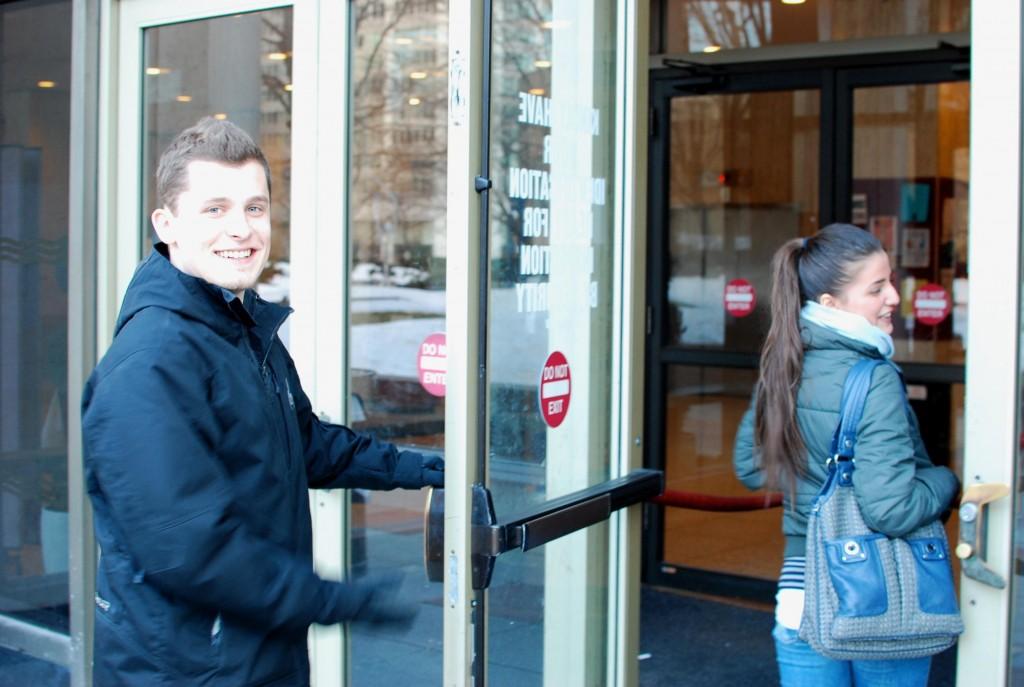Don’t Be A “Rude Boy”: Use Honey Instead of Vinegar to Get Your Way
July 23, 2011

Published: February 16, 2011
It’s Tuesday afternoon at 3:45 p.m. It seems like I’ve been in classes or meetings since before I woke up this morning, and my day is only half over. My list of things to do tonight: research and write four pages on the social implications of the bricks chosen to build the Amsterdam Houses (or something as mundane); learn 200 Japanese characters that even Japanese people don’t use; watch, withhold vomiting and comment on Justin Beiber’s latest music video for TV class; and finish production on the Opinions section (not to complain, but this takes much longer than you might realize). And I have an 8:30 a.m. class tomorrow.
OK, now you think this is just going to be me complaining about how busy I was and continue to be, but I assure you that I hate whiners just as much as I love whining, so let me get to my point.
This was my life every other Tuesday last semester. Predictably, I was not a pleasant person Wednesday mornings. Honestly, I wasn’t very nice…on any day, but Wednesdays were particularly bad. Last semester I learned that I am more of a New Yorker than I thought; apparently I react to building pressure by snapping at everyone around me.
I’d respond to people’s comments in class by personally attacking them. Someone would offer me coffee and I’d suggest they get a nose job. A puppy would bark at me funny and I’d kick it to Milwaukee (yes, I was the bad man who punted Baxter). In short, I was fitting every definition of the word “rude.” And I justified it all by saying, “Hey, I’m really busy. I have a right to be a little grumpy.”
This year, I vowed not to slip into what I realized was a dangerously easy place to be, that constant state of anger. This was mostly because of my internship supervisor. She told me that being rude to people just encourages them to be rude to others. To use a Fordham-friendly metaphor, rudeness is like the opposite of Jesus’s Golden Rule. It’s treating others the way you would NOT want them to treat you.
It’s easy to understand why people react to stressful situations like this. When someone is being difficult, the easiest way to get them to do what you want is to be rude sometimes. Think Ari from “Entourage.” Although the only time this type of rude behavior actually works is in TV shows. In the real world, I’ve never seen someone react positively to being treated poorly.
I know New York has an image of importance—that’s one of the reasons we came here to study. Manhattan’s infamous rudeness is a by-product of this: we have important things to do, and anyone who isn’t doing their job right doesn’t deserve kindness. So we allow ourselves to lose the manners Mr. Rogers taught us and be rude to people. We call people “incompetent,” “stupid” or “poopy-heads” and treat them like garbage in order to get what we want done.
I’ve seen the effect of rudeness so many times this year: in co-workers who shout at each other after being in tight situations for long hours; in friends who yell at me after getting yelled at by their bosses; and in the grumpiness that enters a room after I let out my Wednesday morning angst. Everyone just gets less happy.
Instead, we should be making people happier. This year I’ve already found that I’m getting more favors because I’m being nicer. For example, my roommate just made me dinner for the third time this week (last semester, he only made dinner twice a week). You don’t have to be like Barney, but in my experience, words of encouragement go farther than words of warning to get people working.
As they say, all you need is love.











